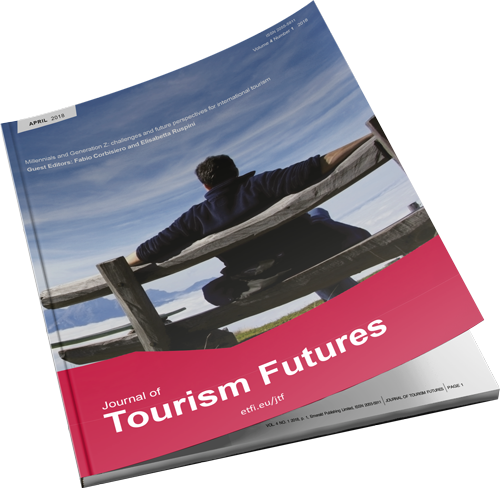The future of e-HRM and AI in the tourism and hospitality industry
Technologies that facilitate human resource management, labelled as digital or electronic human resource management (e-HRM) are developing rapidly, an observation that is shared by many. Relatively recently the term artificial intelligence (AI) caused a new wave of potential technological facilitation for HRM. For the tourism and hospitality industry this offers new hopes to deal with the talent management challenges such talent attraction and retention.
Special issue Journal of Tourism Futures
However, as with every new technological wave, caution is needed. Technology itself does not solve problems and challenges. The way how individuals, businesses and organisations choose to use it may help to solve them. The brand-new special issue of the Journal of Tourism Futures presents papers that cover a broad range of talent management related challenges and issues for the tourism and hospitality industry in which recent technological developments play a role.
Talent management challenges for the tourism and hospitality industry
The special issue aims to contribute to the body of knowledge on how the future of e-HRM and AI in the tourism and hospitality industry make unfold and develop. Much more research-based insights are needed in order to help decision the industry to adopt e-HRM and AI in a way that helps rather than harms to flourish in a sustainable and responsible way.
- Article 1 by Meijerink and Schoenmakers: shows that online reviews in Airbnb are skewed towards positive ratings. This is relevant for talent management since online reviews affect performance evaluations.
- Article 2 by Johnson, Stone and Lukaszewski: shows the potential that e-HRM and AI holds for recruitment and selection in the hospitality and tourism industry. However, the article warns that how this is received by employees affects employee and organisational outcomes.
- Article 3 by Dossena, Mochi, Bissola and Imperatori: presents a study on the relevant capabilities and competencies for using social media in the food service sector. These are necessary to turn social media into a source for competitive advantage.
- Article 4 by Njoku and Ruël: shows a developed framework to evaluate the impact of artificial intelligence technologies on employee engagement, retention and productivity in the hospitality industry.
Explore other research articles and book reviews in our latest special issue of the Journal of Tourism Futures.
This blog was written by our guest editor Huub J.M. Ruël, Professor of International Business and Global Talent Management at Hotelschool The Hague.

Become member of our Journal of Tourism Futures
Receive new scientifically proven insights about the future of tourism directly in your mailbox.




